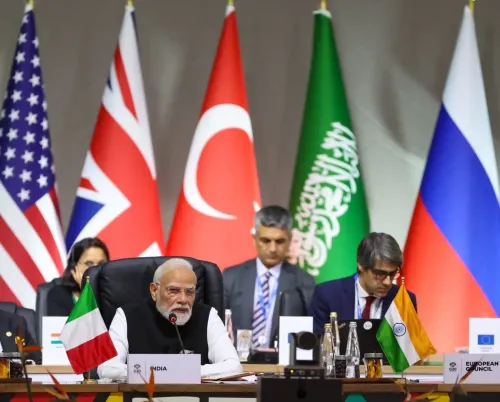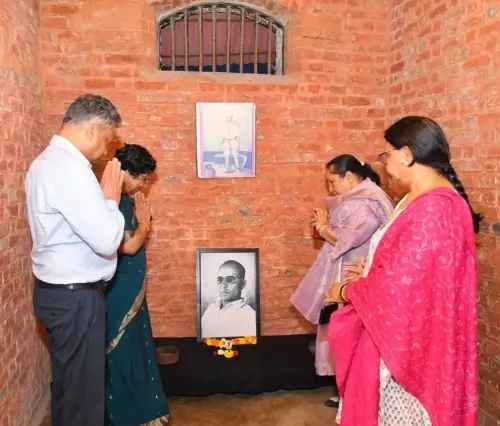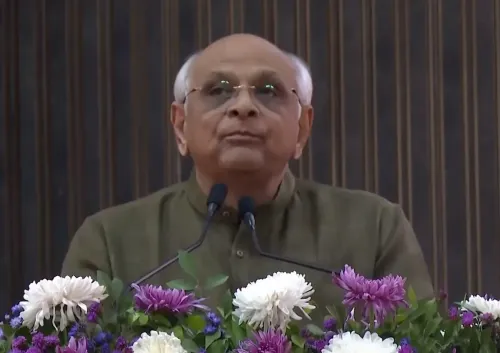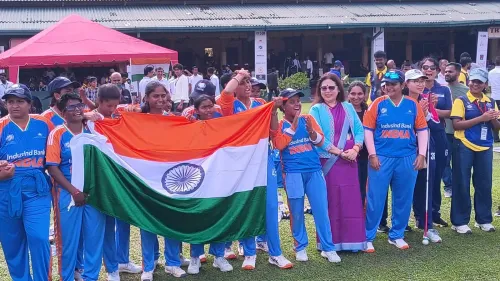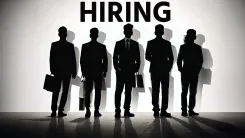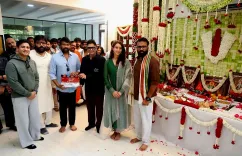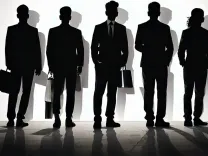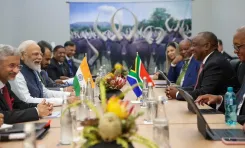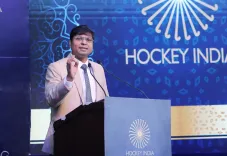Can 'One Nation, One Election' Enhance Governance?
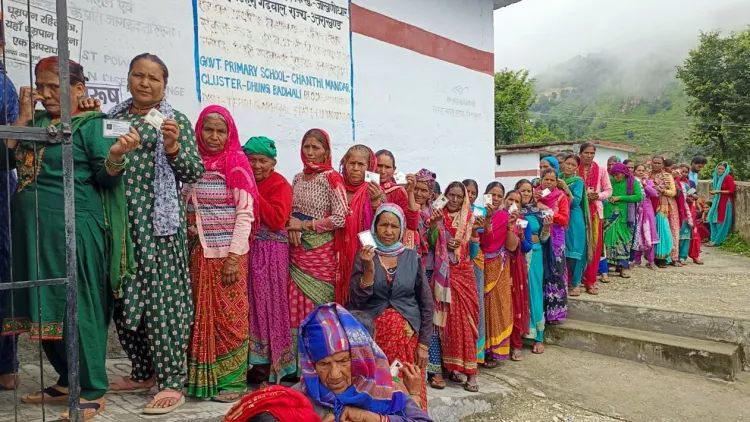
Synopsis
Key Takeaways
- Simultaneous elections could reduce corruption.
- Frequent election cycles disrupt governance.
- Experts advocate for stricter party registration guidelines.
- Women’s representation is improving in local self-governments.
- ONOE could strengthen democratic institutions.
New Delhi, Aug 11 (NationPress) The Joint Parliamentary Committee (JPC) convened to discuss the ambitious 'One Nation, One Election' (ONOE) Bill on Monday, led by BJP MP PP Chaudhary.
Prominent academics and former lawmakers contributed their thoughts during this meeting, focusing on the proposed simultaneous elections for both Lok Sabha and state assemblies.
Among the expert witnesses were Prof. G. Gopal Reddy, Chairperson of the Governing Body at Miranda House and former UGC member; Prof. Sushma Yadav, former Vice-Chancellor of Central University of Haryana; Dr. Vinay Sahasrabuddhe, ex-Rajya Sabha MP and political thinker; Prof. Sheila Rai, General Secretary of the Rashtriya Samaj Vigyan Parishad; and Prof. Nani Gopal Mahanta, Director of the Centre for South East Asia at Gauhati University.
These experts emphasized that democracy should not be equated with constant electoral events. They argued that the ongoing cycle of elections fosters corruption, disrupts governance, and undermines the effectiveness of long-term policy initiatives. Furthermore, they noted that the Model Code of Conduct, which restricts government actions once elections are announced, obstructs development projects and hampers administrative continuity.
The excessive number of political parties was also a point of concern. With over 2,700 registered parties, many lack the necessary capacity or commitment to function effectively. Experts advocated for stricter regulations regarding party registration, suggesting that acquiring an Election Commission symbol has become overly simplistic, while maintaining and managing a party is increasingly challenging.
They proposed reforms in four additional areas: political party oversight, transparency in election campaigning, parliamentary conduct, and enhancing women’s representation.
Local self-governments have exhibited positive trends in electing women representatives, with numerous successes in unreserved constituencies, indicating a hopeful direction for gender inclusivity.
The suggestion of creating 'report cards' for candidates, which would provide voters with performance-based evaluations to ensure accountability, was also put forward. Constituency-specific manifestos and Action Taken Reports from political parties were recommended to close the gap between promises and actual delivery.
Experts expressed concerns regarding the disruption caused by staggered elections to sectors like education, particularly affecting school operations.
It was explained that administrative resources and infrastructure are often redirected during elections, negatively impacting classroom learning and public service delivery.
The prevailing sentiment among experts was that the ONOE initiative, instead of threatening federalism, could actually bolster democratic institutions by allowing governments to concentrate on governance rather than constant electoral strategies.
PP Chaudhary remarked after the session that the insights from these experts were 'invaluable', stressing that this reform is 'crucial for the nation’s progress.'
The JPC, established during the previous winter session of Parliament, consists of 31 members — 21 from Lok Sabha and 10 from Rajya Sabha — representing both the ruling coalition and the opposition. Notable members include Priyanka Gandhi Vadra, Supriya Sule, Randeep Surjewala, Sambit Patra, and Anurag Thakur.
Chaudhary also announced that the next meeting of the committee is set for August 19, featuring former Chief Justice of India Sanjiv Khanna, who will share his legal insights on the constitutional implications of the ONOE proposal.

